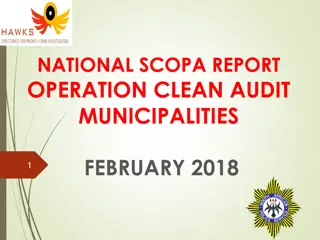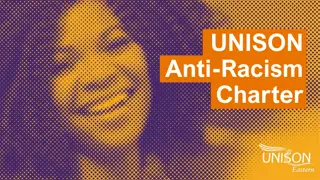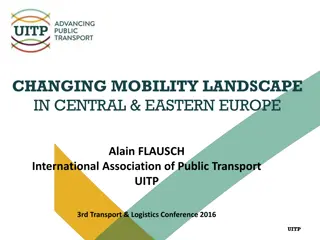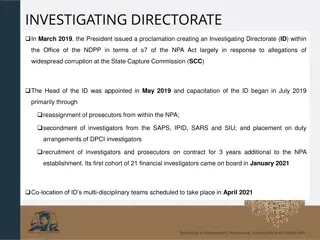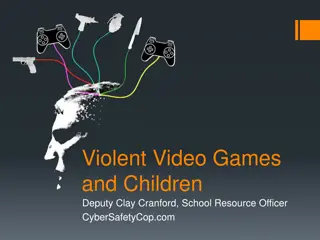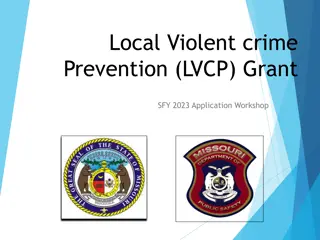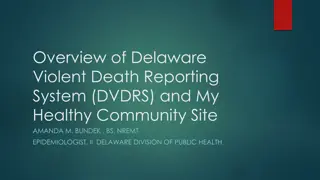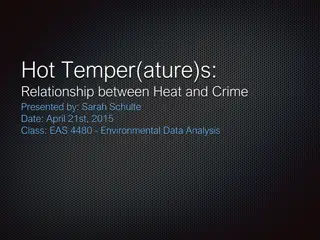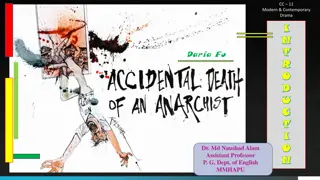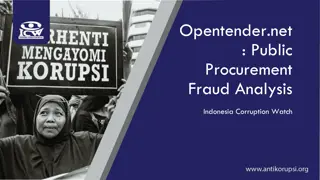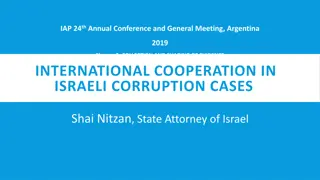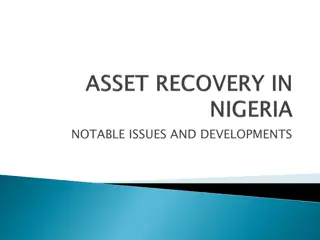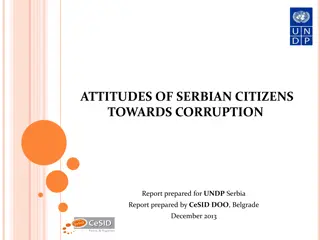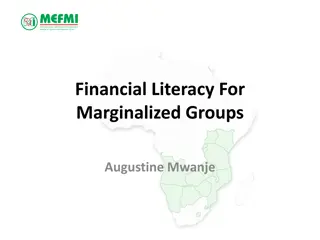Countering Violent Extremism Through Anti-Corruption in Eastern Africa
The project aims to pilot the impact of countering police corruption on radicalization and acts of violent extremism in Eastern Africa. By increasing internal anti-corruption oversight, empowering communities to report corruption effectively, and promoting collaboration between community, police, and media, the project seeks to address the root causes of violent extremism. Assumptions include building public confidence, reducing police corruption, and enhancing cooperation with the community and media. The initiative covers policing communities in Kenya and Tanzania, identifying key areas for intervention and emphasizing the role of civil society in exposing corruption and driving social change.
Download Presentation

Please find below an Image/Link to download the presentation.
The content on the website is provided AS IS for your information and personal use only. It may not be sold, licensed, or shared on other websites without obtaining consent from the author. Download presentation by click this link. If you encounter any issues during the download, it is possible that the publisher has removed the file from their server.
E N D
Presentation Transcript
COUNTERING VIOLENT EXTREMISM THROUGH ANTI-CORRUPTION IN EASTERN AFRICA. Mohamed Jaafar East Africa CSO Roundtable On Fast-tracking UNCAC Implementation Addis Ababa, Ethiopia 12th April, 2019
Project Objectives and Outcomes Objective: To pilot the impact of countering police corruption on radicalization and acts of violent extremism in the community Outcomes 1: Increase capacity for internal anti-corruption oversight in Kenya s National Police Service and the Tanzania Police Force Outcome 2: Empower communities to report on police corruption in an effective manner and address acts of violent extremism Outcome 3: Promote collaborative working relations between community, police, and the media at a local level
Scope of pilot project Assessment undertaken identified 6 policing communities Kenya - Nairobi (Pangani and Shauri moyo) - Mombasa (Likoni and Changamwe) Zanzibar (Ng ambo and Mwera) Validation of Project done in June 2017 Field Implementation commenced in August 2017 Project housed at Internal Affairs Unit (Kenya) and Zanzibar Police Commission Local Community Advisors and partners identification
ASSUMPTION Countering violent extremism more effectively Cooperation with community and media Reducing Police Corruption Building public confidence If police leadership, management, officers, and staff are committed, willing and actively fighting institutional corruption, then public confidence and trust will increase If public confidence and trust in the police increases, then the community and the media are likely to cooperate in countering radicalization into violent extremism If the police, community and media understand their roles, responsibilities and obligations, then they will be more effective in countering corruption and violent extremism
Corruption in Kenya and Tanzania Laws and institutions in place- H/W Whistleblower needs more legislative support Corruption and economic crimes are partners in crime Media and CSO exposure of corruption and the drivers of radicalization for decades- Traditional Role of CSO s https://www.standardmedia.co.ke/article/2001318406/ngo-blames-police-force-after-naked-bodies-were- found-decomposing-in-park https://idpc.net/media/press-releases/2016/08/over-300-ngos-call-on-the-united-nations-to-take-immediate- action-on-the-hundreds-of-extrajudicial-killings-of-suspected-drug-offenders-in-the-philippines Still, impunity persists despite CSO s major roles- Watchdog ( Accountability including Inter l Obligations), Awareness Creation, proposing alternatives ETC
Corruption and VE Low confidence in institutions no reporting Transparency International Corruption Perception Index 2018: N/B the average score is just 43. Kenya: 144 Rwanda: 48 Burundi: 170 Ethiopia: 114 Tanzania: 99 Djibouti: 124 Uganda: 149 S.S: 178 Evidence from TI suggest countries lowest on the index often in conflict. This gives good grounds for prospective VE UN SG Plan of Action on preventing VE suggests countries that fail to control corruption witness greater number of incidents linked to VE
Terrorism Patterns and Trends: Global Perspectives- (Institute for Economics and Peace- Since 2000) v Factors Considered in the ranking Total number of terrorist incidents in a given year Total number of fatalities caused by terrorism in a given year Total number of injuries caused by terrorism in a given year The approximate level of total property damage from terrorist incidents in a given year
Link between Corruption and VE/ Terrorism Corruption may be a cause and consequence of govt deficit and therefore sustain conditions that may fuel VE State institutions weakened by ingrained and deep-seated corruption are not only less effective in fighting terrorism but are vulnerable to exploitation by terrorist groups, Corruption and poor governance hamper countries ability to fight terrorism (Corruption in the police, military, judiciary e.t.c) Corruption facilitates international terror attacks (Immigration, customs, judiciary e.t.c) Corruption helps cross-border terrorist financing (Charcoal and wildlife). Corruption and terrorist financing share methods to hide money ( Money Laundering)
The Link Between Corruption and Radicalization Into Violent Extremism Primary recruiting pool for violent extremist groups using corruption narratives: 1) Rural, less educated- H/W Devolution changed the dynamics of information sharing- Opp for CSO s 2) Urban, educated, disgruntled with bad governance 3) Political dissidents and the corruption narrative of sitting regimes. ( Bible and Quran Verses) GAP FOR Kenyan CSO: Research on effect of devolution
The Link Between Corruption and Radicalization Into Violent Extremism Part Of the SOLUTION (re)build trust between communities and officials through the strengthening of an inclusive and rights-based governance system and public space
STRENGTHEN TRUST TRUST
ACFEs 2010 Global Fraud Study Most schemes are detected by tips Employees are most common source of tips Existence of hotlines increase number of tips Corruption schemes were most commonly reported in mining, oil and gas, and construction industries www.acfe.com
Some activities Implemented Under the Project Baseline Survey to determine Police- Community Trust in Kenya and Tanzania (Zanzibar) Development and operationalization of an Anonymous Reporting System (ARIS) for IAU and capacity/ material Support (Joint with TI Kenya), Toll Free Number for ZAECA Supporting Working Committees In six Policing Communities in Kenya and Tanzania (Zanzibar)- Refurbishment and cleaning exercises Continuous Dialogue Sessions- Media, Community, Police and independent bodies Joint Police and Community Public forums to publicize the Baseline findings and ARIS Use of Local Radio Programmes in the Six Policing Communities Use of Sports and drama to encourage trust building at the community level
QUESTIONS? Thank you, Asante, Merci, Murakoze Kyane, Neyanzizaa Nyoo, Ameseginalehu, Kea Leboha, Shukran!
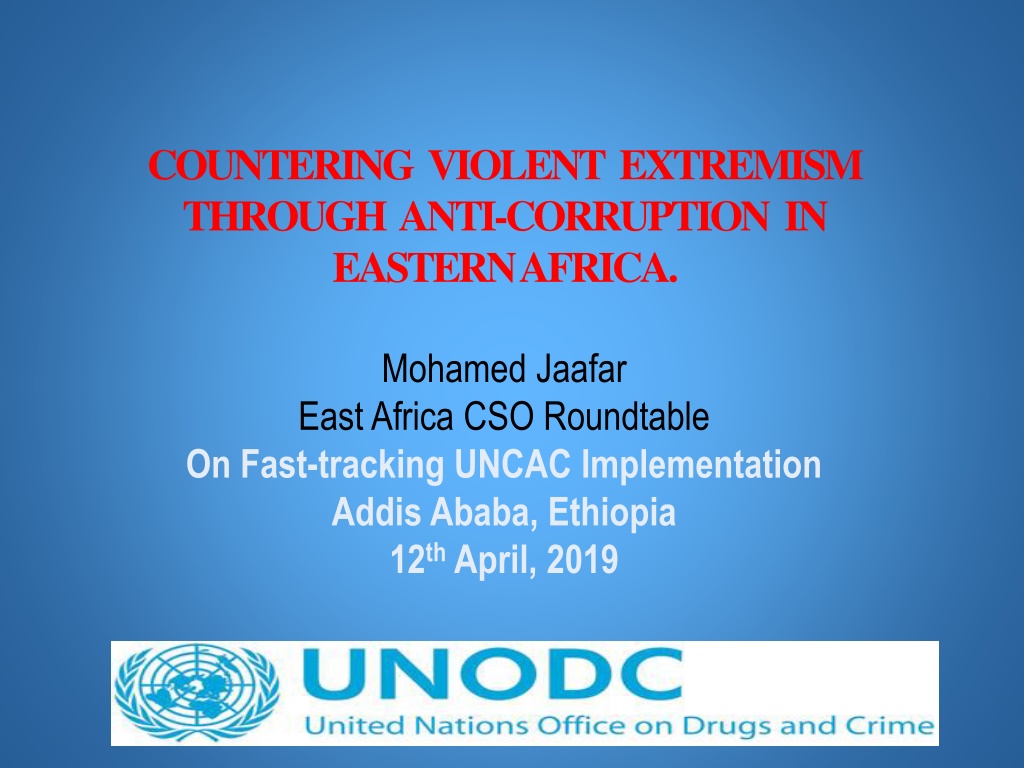

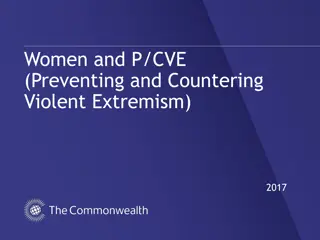
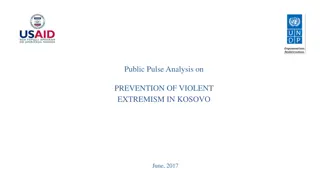
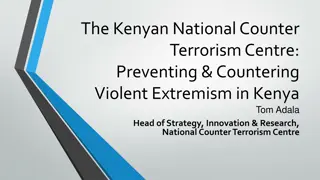
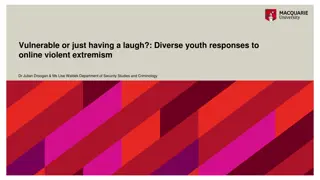
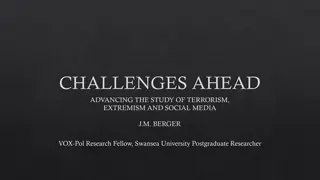
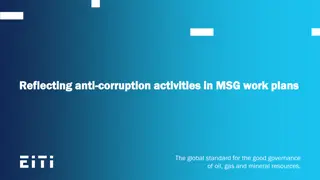
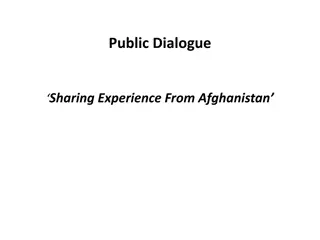
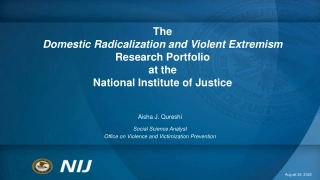
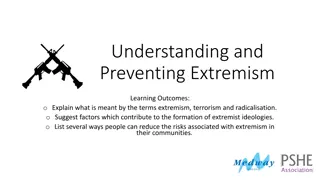
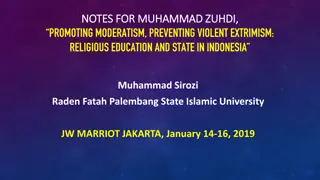
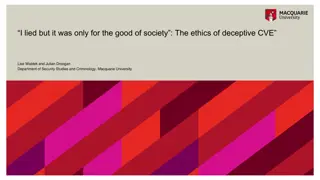
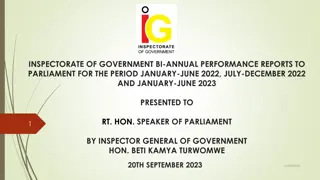

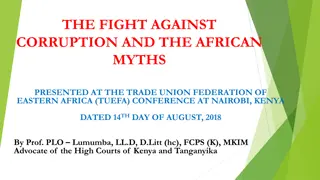
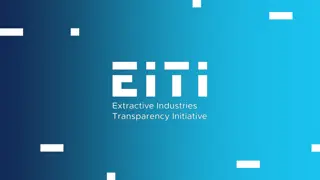
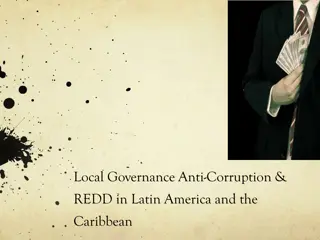
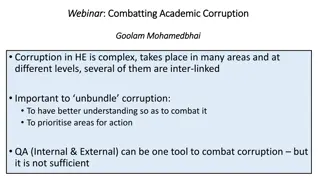
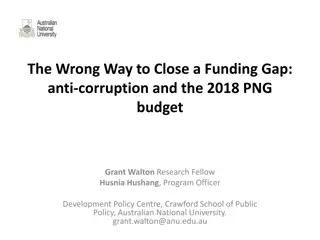
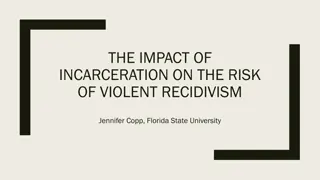
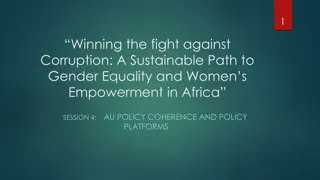
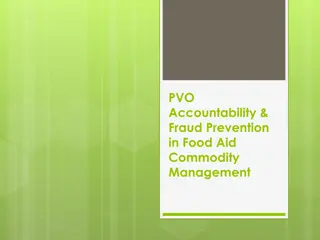
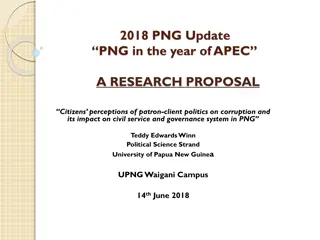
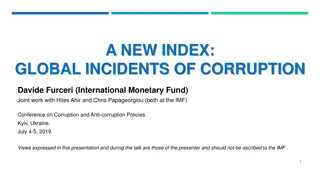
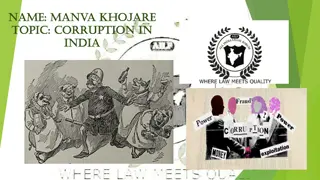
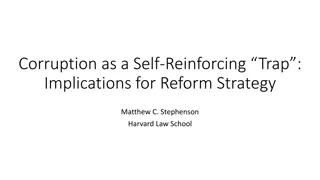
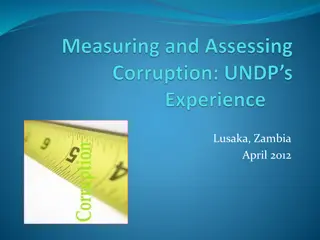
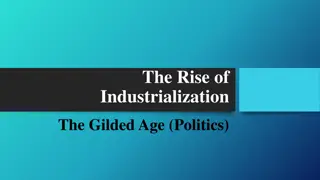

![Comprehensive Overview of Corruption Watch Submission on Public Procurement Bill [B18B-2023]](/thumb/138344/comprehensive-overview-of-corruption-watch-submission-on-public-procurement-bill-b18b-2023.jpg)
